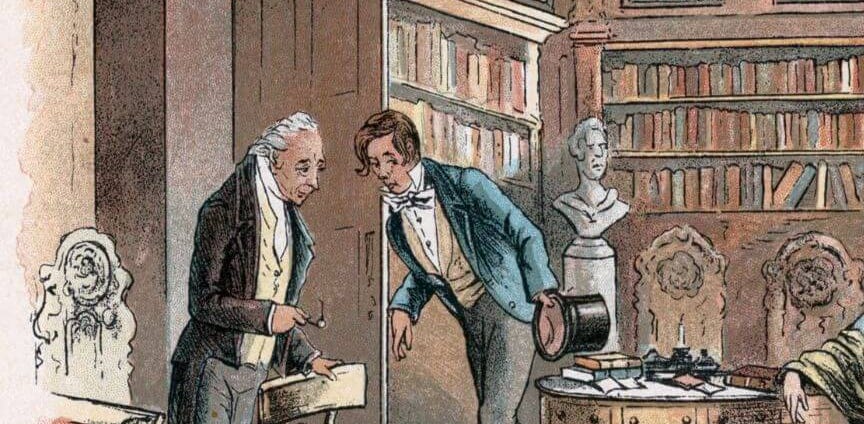How to Get a Job
When the corporate interviewer leans forward in his fuax-leather office chair and discharges his inevitable “Why do you want to work here?” we rightly despise him for the expectation which dangles from this question. The interviewee is to frame his answer in terms of his “personal development”, his “passion for finance” or otherwise his alignment with the ethos of that particular company. He is to avoid under any circumstances the honest answer: That he needs the money; that his mother has forced him to come, or that he has heard talk of a surprisingly lax sexual harassment policy.
There is no convincing way to answer the question, as both interviewer and interviewee are aware of its purpose, which is to test the candidates ability to lie convincingly. There may be, in some far outpost of Slough, an acrylic-suited general manager in his sixties, a copy of 7 Habits of Highly Effective People stowed away in the top left hand drawer of his office desk, who continues to ask the question with some degree of earnest, but for the majority the question is decidedly post-ironic:
Post-ironic, and not merely ironic, because — though the premise of the question is cynical, and its answer almost always dishonest — both parties are willing to at least partially suspend their disbelief in order to participate in the lie in the moment. That the question has passed passed from sincerity to artifice is in fact liberatory, as it gives implicit permission to the candidate to act, to perform, to speak from behind the mask and to avoid mixing his personal self up in the dirty business of work. This thin film of insincerity protects the dignity of both the interviewer, who is aware of the ridiculousness of his position, and the candidate, whose pride he can safely leave in the waiting room while both men pretend to engage in a serious conversation.
Odious as this little ritual is, it is necessary. Why, then, do we expect so much more from writers? While the corporate world tacitly accepts the material interests of its parties, pushing them through only the briefest of charades, the writer is expected to maintain, not for a brief moment but throughout his whole career, that he writes from passion rather than pragmatism. The reader expects every aspect of his work to be infused with this sincerity. If he does not write journalism out of the interest for the common man, he must write poetry guided by high-minded aesthetic principles. If he does not aspire to depict reality as it really is (whatever that may mean) he is expected to excavate some invisible truth. Even if the writer markets himself as a peurile entertainer, his primary love is supposed to be the joy and the laughter of his audience, and not the contents of their purses. In every moment he is expected to foster the illusion that his interest is anything but financial gain. That every line, were he honest, would not scream Pay up! Pay up, you stupid pigs!
Reader, it is never the case.


